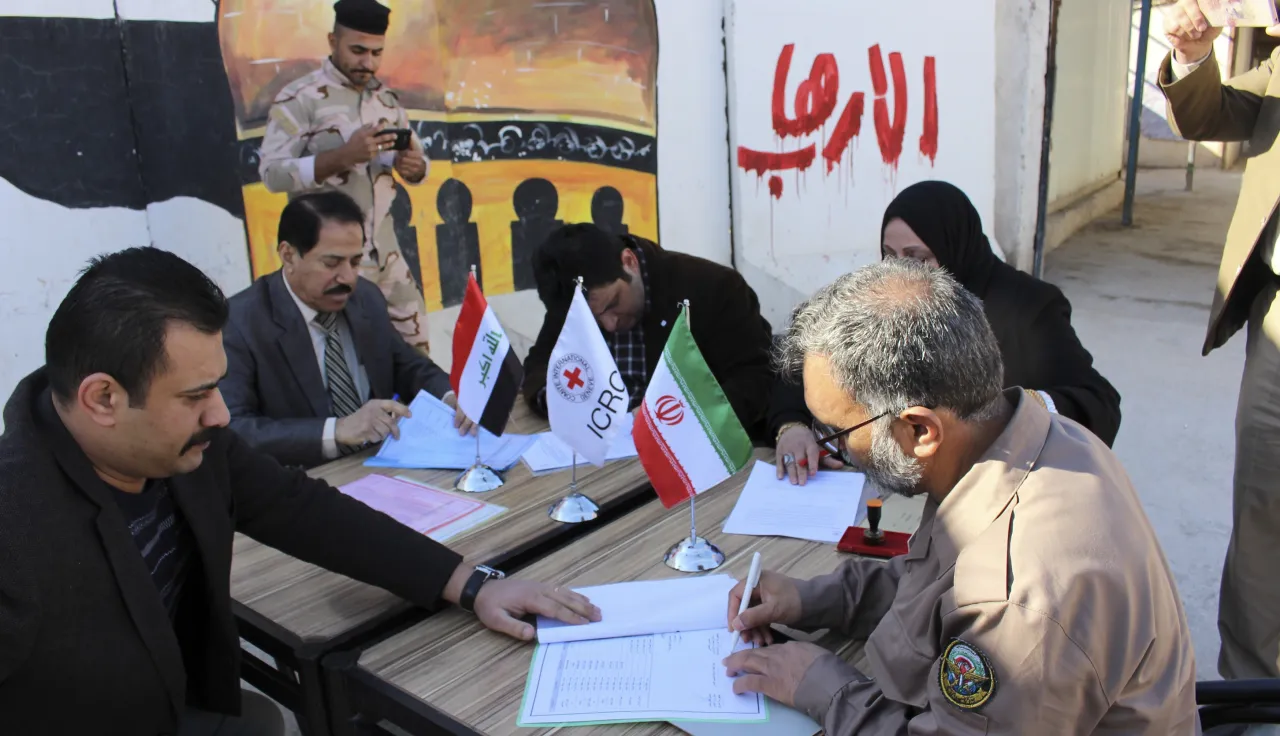Worldwide experts to look into mechanisms for missing people at Cyprus workshop

Nicosia, Cyprus (ICRC) – More than 60 experts and representatives of families of missing persons from around the world met in Nicosia on 16 and 17 October to share their experiences and collectively identify critical components and features for effective mechanisms for missing persons. The workshop was jointly organized by the International Committee of the Red Cross (ICRC) and the Committee on Missing Persons in Cyprus (CMP).
The term "mechanism" refers to all institutions, organizations, bodies and processes that aim to clarify the fate and whereabouts of the missing persons and provide support to their families. Mechanisms can be established at international or regional levels (such as the Iran-Iraq-ICRC tripartite commission) or at national level (such as the Office of Missing Persons established in 2018 in Sri Lanka) and may include a wide range of approaches, technical features, or institutional setups.
"With such diversity of approaches, the meeting in Cyprus should help us identify with high level experts from around the world the key elements to consider when setting up a mechanism for missing persons", explains Caroline Douilliez, head of the ICRC's Missing Persons Project. "An efficient and sound mechanism can greatly contribute to improving the rate and quality of the answers we collectively owe to missing persons and their families."
The Nicosia meeting aims to leverage the recent United Nations Security Council Resolution 2474 on missing persons in armed conflict which was co-sponsored by 69 States and adopted in June 2019. This Resolution recognizes the need for multisectoral collaboration on the issue of missing persons, and calls upon States to set up mechanisms and strengthen the capacity of the existing ones for this purpose. It also encourages all member states to engage in networking and exchange of experience, best practices and technical recommendations, while fostering other means of inclusive coordination between all relevant parties.
Against this background, the ICRC, in partnership with the CMP, is convening an international workshop with participants from around the world who will be given an opportunity to share their experiences, views and methodologies in order to identify good practices and key aspects which all mechanisms should consider.
To hold such a meeting on mechanisms in Cyprus and in partnership with the CMP is of particular relevance since participants will benefit from the long experience that the CMP has accumulated since its establishment in 1981, notably the systematic bicommunal approach adopted in its proceedings.
The event in Cyprus is part of ICRC's Missing Persons Project, a four-year initiative to create a global community of practice and common technical standards to better tackle the issue of missing people and support their families. The meeting in Cyprus follows workshops hosted in Antigua, Guatemala, in May, Sarajevo, Bosnia and Herzegovina, in July, and Dead Sea, Jordan in September. These workshops focused respectively on collecting and sharing information about missing migrants, supporting the families of the missing and organising the search for missing persons.
The knowledge and insights that are gathered through the two-day Cyprus workshop will be consolidated and shared with the global community of practice on missing persons. They will also inform ICRC's efforts as it initiates a process to develop concrete recommendations for improving the effectiveness of all mechanisms that deal with missing persons and their families.



